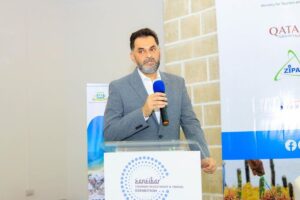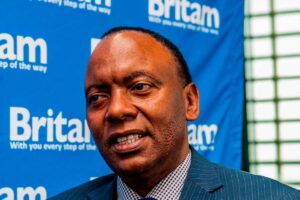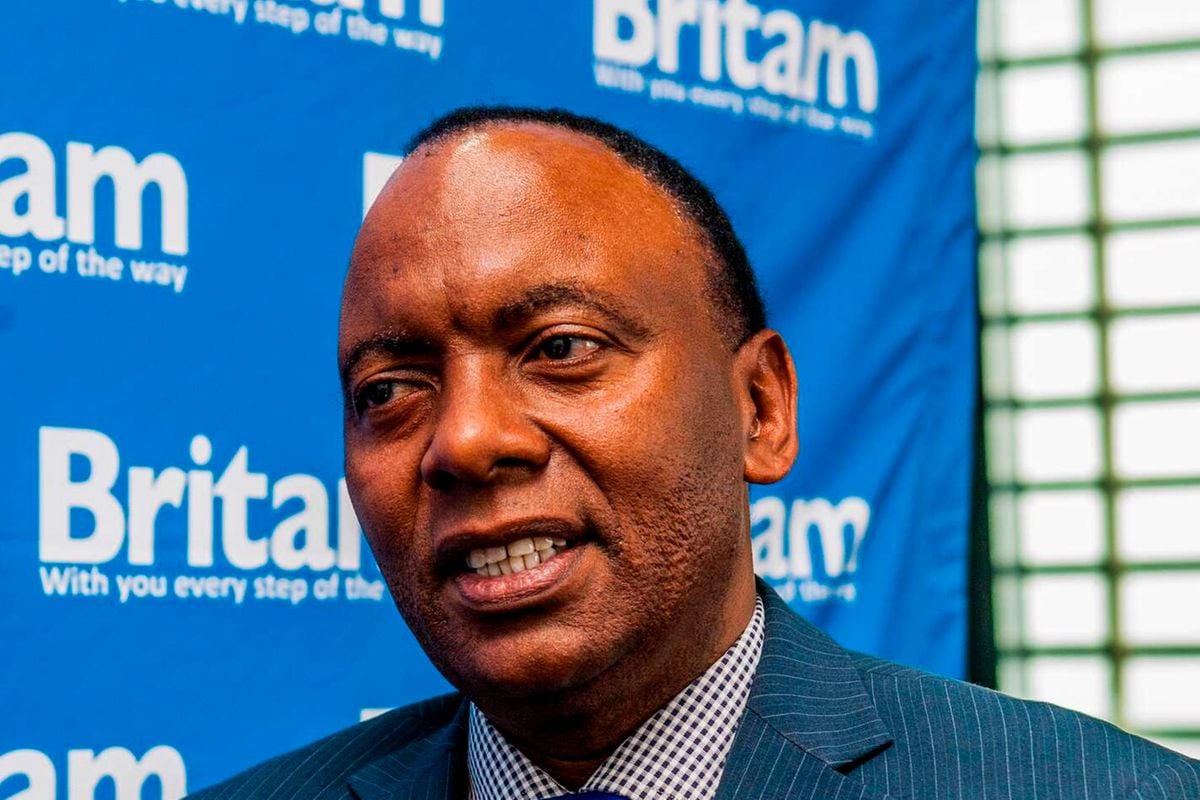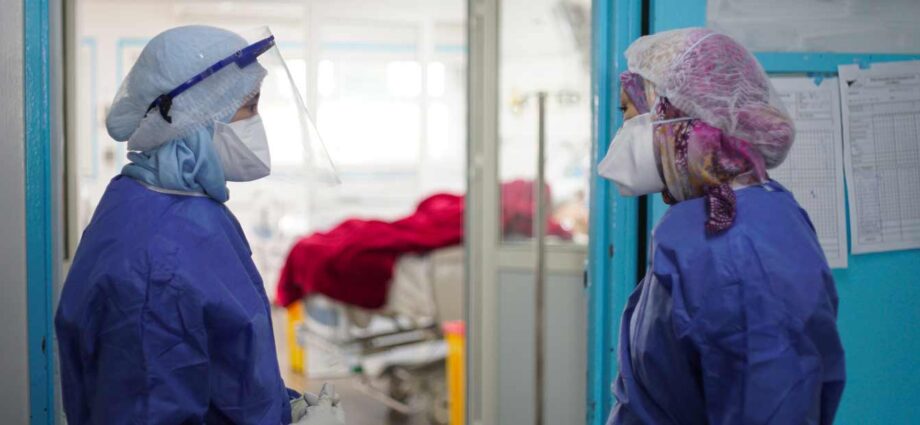Since the onset of the Covid-19 pandemic, the Africa Investment Forum, a marketplace for transactions that close Africa’s investment gaps, has channelled investments to projects that address the continent’s biggest healthcare challenges – building quality healthcare infrastructure; developing the continent’s pharmaceutical industry; and increasing the capacity of vaccine manufacturing.
These priorities were outlined by African Development Bank president Dr Akinwumi Adesina earlier this year, when he warned at an African Union summit that “Africa cannot afford to outsource the healthcare security of its 1.4 billion citizens to the benevolence of others.”
In March 2022, the Africa Investment Forum brought together investors, deal sponsors and government ministers for virtual Boardroom meetings to advance transactions that had been prepared for closure.
Five of those boardroom transactions, with a value of $484 million, were healthcare projects spanning virtually all regions of the continent. They included two specialist hospitals, a multinational health fund, a pharmaceutical and biomed industrial hub, and a mobile telemedicine project.
These projects demonstrate the breadth of opportunity available in what is expected to be a fast-growing sector over the next decades. They also showcase the Africa Investment Forum’s power as a connector of Africa to investors from around the world.
Mobihealth, the telehealth provider mentioned earlier sets up kiosks on the premises of corporations, schools and churches that provide 24/7 access to local and international medical experts and remote diagnostic tools. It plans to integrate virtual reality in the service of medical diagnostics. The company is seeking $67 million to drive its target of reaching and treating at least one million patients within ten years. It will achieve this by rolling out services in several new countries in East and North Africa.
Given that there are around 0.4 trained doctors for every 1000 people sub-Saharan Africans, and even fewer in rural parts of the continent, telemedicine offers a promising solution that can cut the likelihood that serious illnesses will progress unchecked and also create skilled jobs. Rising rates of smartphone adoption are expected to expand the customer base for these services.
The onset of Covid-19—and the vaccine inequality that followed – also underscored the importance of improving preventive care in Africa, the continent with the highest disease burden.
In February 2022 The World Health Organization announced that Kenya, Senegal, Tunisia, South Africa, Egypt, and Nigeria would be the pioneering participants in its mRNA technology transfer hub initiative. An mRNA vaccine is a type of vaccine that uses a copy of a molecule called messenger RNA (mRNA) to produce an immune response.
The WHO’s initiative paved the way for the manufacture and licensing of a range of pharmaceuticals in these six countries.
Among the transformational Boardroom transactions that exemplifies the opportunities, is the construction of an $80 million industrial pharmaceutical and biomedical hub to meet the vaccine needs of the West Africa region, and perhaps beyond. The plan includes the integration of several components: industrial production of drugs and related activities; a logistics platform; a pharmaceutical research & development zone; and a university centre focused on pharmaceutical and biomedical sciences.
Another project points to a growing health threat. Cancer rates are expected to double in Africa during the next two decades, according to study by an American university. The project is for the development of a $140 million specialist oncology hospital serving the southern Africa region. It will provide 30-day beds, 30 adult medical oncology beds, 30 adult and 10 paediatric and medical oncology beds and another 50 beds for those in physical rehabilitation.
The Africa Investment Forum’s 2022 Market Days will present these and many other transactions to investors from around the world. Market Days is taking place from 2nd to 4th November in Abidjan, Cote d’Ivoire.
In addition to health care transactions, the event will feature deals in the energy, transport, infrastructure and agribusiness sectors. Market Days will also promote opportunities in industries where Africa has a comparative advantage such as music, film and textiles, as well as transactions that offer considerable benefit to women.
The deals will be sourced from the investment pipelines of the eight founding partners of the platform. They are: the African Development Bank, Africa50; the Africa Finance Corporation; the African Export-Import Bank; the Development Bank of Southern Africa; the Trade and Development Bank; the European Investment Bank; and the Islamic Development Bank.
Since its inception in 2018, the Africa Investment Forum platform has mobilised investment interests in excess of $100 billion.
Source: afdb.org
Share this news
This Year’s Most Read News Stories

Zanzibar’s tourism body chairman Rahim Bhaloo resigns
Bhaloo, who is also Chairman of the Zanzibar Commission for Tourism (ZCT), cited pressing family issues as the reason for his departure.Continue Reading

Tanzania Confirms Outbreak of Marburg Virus Disease
Dodoma — Tanzania today confirmed an outbreak of Marburg virus disease in the northwestern Kagera region after one case tested positive for the virus following investigations and laboratory analysis of suspected cases of the disease.
President of the Republic of Tanzania, Her Excellency Samia Suluhu Hassan, made the announcement during a press briefing alongside World Health Organization (WHO) Director-General, Dr Tedros Adhanom Ghebreyesus, in the country’s administrative capital Dodoma.
“Laboratory tests conducted in Kabaile Mobile Laboratory in Kagera and later confirmed in Dar es Salaam identified one patient as being infected with the Marburg virus. Fortunately, the remaining suspected patients tested negative,” the president said. “We have demonstrated in the past our ability to contain a similar outbreak and are determined to do the same this time around.”
A total of 25 suspected cases have been reported as of 20 January 2025, all of whom have tested negative and are currently under close follow-up, the president said. The cases have been reported in Biharamulo and Muleba districts in Kagera.
“We have resolved to reassure the general public in Tanzania and the international community as a whole of our collective determination to address the global health challenges, including the Marburg virus disease,” said H.E President Hassan.
WHO is supporting Tanzanian health authorities to enhance key outbreak control measures including disease surveillance, testing, treatment, infection prevention and control, case management, as well as increasing public awareness among communities to prevent further spread of the virus.
“WHO, working with its partners, is committed to supporting the government of Tanzania to bring the outbreak under control as soon as possible, and to build a healthier, safer, fairer future for all the people of Tanzania,” said Dr Tedros. “Now is a time for collaboration, and commitment, to protecting the health of all people in Tanzania, and the region, from the risks posed by this disease.”
Marburg virus disease is highly virulent and causes haemorrhagic fever. It belongs to the same family as the virus that causes Ebola virus disease. Illness caused by Marburg virus begins abruptly. Patients present with high fever, severe headache and severe malaise. They may develop severe haemorrhagic symptoms within seven days.
“The declaration by the president and the measures being taken by the government are crucial in addressing the threat of this disease at the local and national levels as well as preventing potential cross-border spread,” said Dr Matshidiso Moeti, WHO Regional Director for Africa. “Our priority is to support the government to rapidly scale up measures to effectively respond to this outbreak and safeguard the health of the population,”
Tanzania previously reported an outbreak of Marburg in March 2023 – the country’s first – in Kagera region, in which a total of nine cases (eight confirmed and one probable) and six deaths were reported, with a case fatality ratio of 67%.

Sign up for free AllAfrica Newsletters
Get the latest in African news delivered straight to your inbox
In the African region, previous outbreaks and sporadic cases have been reported in Angola, the Democratic Republic of the Congo, Ghana, Kenya, Equatorial Guinea, Rwanda, South Africa and Uganda.
Marburg virus is transmitted to people from fruit bats and spreads among humans through direct contact with the bodily fluids of infected people, surfaces and materials. Although several promising candidate medical countermeasures are currently undergoing clinical trials, there is no licensed treatment or vaccine for effective management or prevention of Marburg virus disease. However, early access to treatment and supportive care – rehydration with oral or intravenous fluids – and treatment of specific symptoms, improve survival.
Source: allafrica.com

Britam half-year net profit hits Sh2bn on higher investment income

Insurer and financial services provider Britam posted a 22.5 percent jump in net earnings for the half-year ended June 2024, to Sh2 billion, buoyed by increased investment income.
The rise in half-year net profit from Sh1.64 billion posted in a similar period last year came on the back of net investment income rising 2.5 times to Sh13.27 billion from Sh5.3 billion.
“We are confident in the growth and performance trend that Britam has achieved, supported by its subsidiaries in Kenya and the region. Our business is expanding its revenue base while effectively managing costs,” Britam Chief Executive Officer Tom Gitogo said.
“Our customer-centric approach is fueling growth in our customer base and product uptake, particularly through micro-insurance, partnerships, and digital channels.”
The investment income growth was fueled by interest and dividend income rising 34 percent to Sh9.1 billion, which the insurer attributed to growth in revenue and the gains from the realignment of the group’s investment portfolio.
Britam also booked a Sh3.79 billion gain on financial assets at a fair value, compared with a Sh1.8 billion loss posted in a similar period last year.
The increased investment income helped offset the 12.7 percent decline in net insurance service result to Sh2.13 billion in the wake of claims paid out rising at a faster pace than that of premiums received.
Britam said insurance revenue, which is money from written premiums, increased to Sh17.8 billion from Sh16.6 billion, primarily driven by growth in the Kenya insurance business and regional general insurance businesses, which contributed 30 percent of the revenue.
The group has a presence in seven countries in Africa namely Kenya, Uganda, Tanzania, Rwanda, South Sudan, Mozambique, and Malawi.
Britam’s insurance service expense hit Sh13.6 billion from Sh11.3 billion, while net insurance finance expenses rose 2.6 times to Sh12.3 billion during the same period.
“Net insurance finance expenses increased mainly due to growth in interest cost for the deposit administration business driven by better investment performance. This has also been impacted by a decline in the yield curve, which has led to an increase in the insurance contract liabilities. The increase has been offset by a matching increase in fair value gain on assets,” said Britam.
Britam’s growth in profit is in line with that of other Nairobi Securities Exchange-listed insurers, which have seen a rise in profits.
Jubilee Holdings net profit in the six months increased by 22.7 percent to Sh2.5 billion on increased income from insurance, helping the insurer maintain Sh2 per share interim dividend.
CIC Insurance Group posted a 0.64 percent rise in net profit to Sh709.99 million in the same period as net earnings of Liberty Kenya nearly tripled to Sh632 million from Sh213 million, while Sanlam Kenya emerged from a loss to post a Sh282.2 million net profit.











